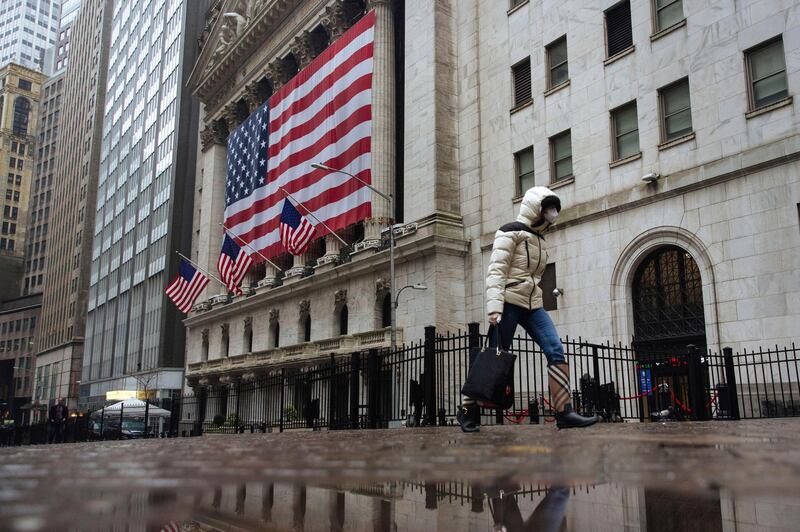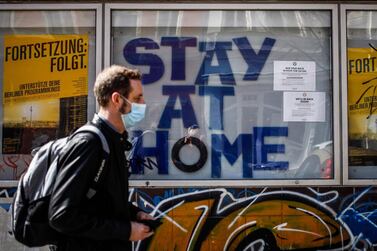As the first quarter of 2020 has shown us, markets have a unique ability to teach investors new lessons. The Covid-19 virus was well flagged from its outbreak in China and with little disruption to wider markets.
The likes of Sars and swine-flu illustrated that viruses could be contained and had no lasting effect on the global economy. This has not been the case with Covid-19 with the true impact only realised as national economies were systematically closed down. Exacerbating the impact of the pandemic was the collapse in March of the Opec+ pact on production cuts which led to oil prices plunging further.
This leads us to an important question: what will the economic environment look like when we emerge from this pandemic? With the oil price dispute happening at an oil price level in the low $50s, and given the subsequent demand destruction, inflation will not be coming from the commodity complex. In addition, if we see a meaningful rise in unemployment, there won’t be wage pressure either. With central banks around the world targeting an inflation rate of 2 per cent, sovereign bond yields will stay anchored for a considerable period.
The uncertainty makes the probability of a ‘V-shaped’ economic recovery lower. The path of fiscal response is expected to be critical. Unusually, the UK government led the agenda by supporting corporates financially to help them retain their workforce. If this does indeed see businesses through the shutdown, recovery will be quicker and healthier. But US and European policies need to move further. While some European governments have moved aggressively, European Union policy to restore debt to gross domestic product levels as soon as 2021 is a concern and would suggest a necessary return to austerity within 12 months.
Corporate earnings are set to see significant downgrades. S&P 500 earnings expectations started the year around $175 in earnings per share and many are now expecting a number in the $130s. A lot can happen between now and the end of the year, but markets are certainly pricing an earnings recession.
It is crucial to understand how deep, how long and how differently we will emerge into a new cycle. Central bank intervention has been swift with lessons learnt from the financial crisis. Many have already delivered rate cuts and renewed quantitative easing.
In mid-March, it appeared a liquidity crisis was about to ensue as extreme deleveraging occurred. This was evident from traditional “safe haven” assets like gold and treasuries that fell alongside other risk assets. It took US Federal Reserve action pumping in significant liquidity to stabilise markets.
At the end of the quarter, while Libor – the level at which banks lend to one another – remained elevated, sovereign fixed income markets were back to pricing a level of normality. That said, normality now means close to zero rates versus the start of the year when 10-year Treasury yields were trading at 1.9 per cent.
For fixed income, the first quarter started with a strong standpoint and we were looking at the full duration of around seven years and high credit quality. However, by the end of the quarter, credit spreads had widened to such a large degree that switching to 3 per cent from our core bonds back into high yield was inevitable.
Although equities will go higher in the medium term, short-term risks are still skewed to the downside as the full impact on corporate earnings becomes clear. The best strategy is to hold from a defensive position, with more firepower to add back in once clarity emerges.
The combination of fixed income carefully balanced with equities is a better way to address the current uncertainties in markets than to be holding large amounts of cash and trying to time an entry point. With the situation likely to worsen over the coming month or two and volatility spiking again, core bonds will outperform cash and help offset equity declines. If global sentiment improves, core fixed income may decline but equities will rally more and likely improve on cash returns.
For equities, our geographic tilt is to the US versus international. Aside from the US being typically more defensive at times of volatility, the underlying growth characteristics are more preferable along with the prospects when the world emerges from the crisis.
At the sector level, we see a ‘quality’ style bias with a dedicated US quality exchange traded fund complemented by overweights to healthcare and, in Europe, consumer staples. Our largest overweight is to communication services, the biggest components of which are Facebook and Alphabet.
This quarter has been one of the worst on record for absolute returns across all asset classes. There is concern the restrictions will be longer than expected, resulting in further negative impact on corporate earnings. Therefore, it is important to retain core bonds to dampen volatility, even with absolute yields as low as they are.
Fiscal stimulus has certainly helped financial markets operate normally again and the focus from here is the level of corporate earnings and how quickly activity can recover. By the very nature of the virus and its uncertainty, approach any investment opportunities cautiously. As painful as the quarter has been, markets and economies will recover in time and this will be an opportunity for those with excess cash to invest.
Steven Rees is the global investments specialist for the Middle East region at JP Morgan Private Bank







